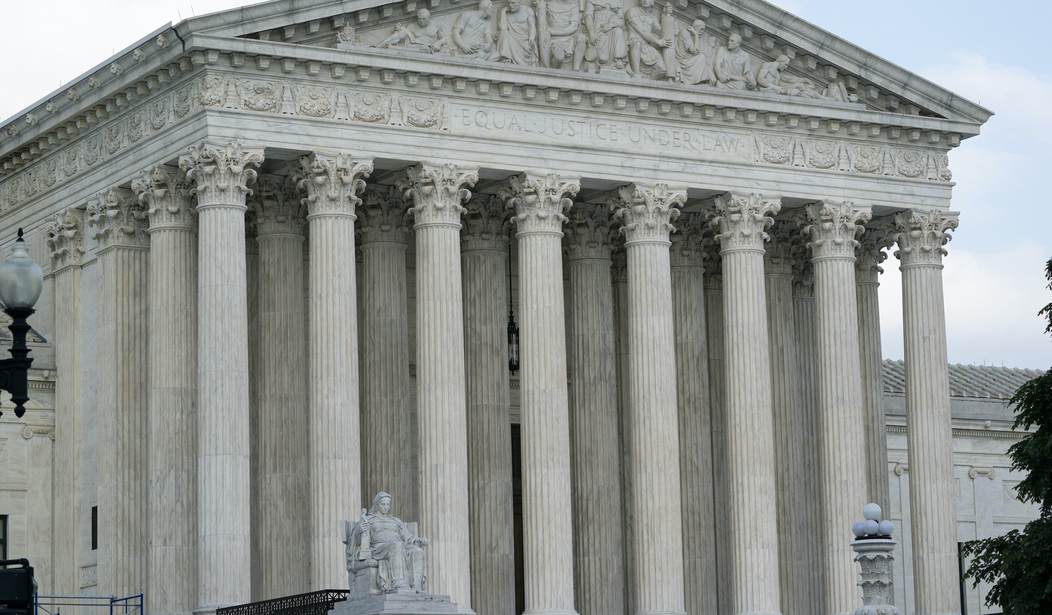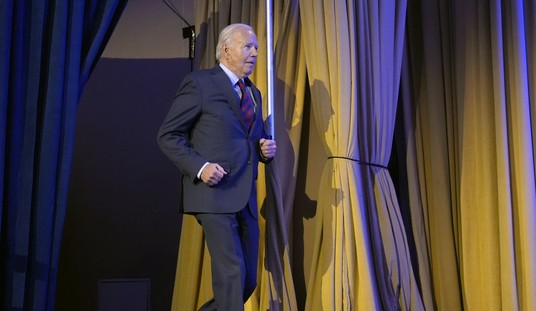An Arab proverb of unknown origin states, “The dogs bark, but the caravan moves on.” It nicely summarizes how those who can, do, while those who cannot whine about it. Such is the case with Poynter’s self-proclaimed fact-check regarding the Supreme Court’s overturn via Dobbs v. Jackson Women’s Health Organization of Roe v. Wade.
The article, penned by two PolitiFact writers, attempts to point out flaws, discrepancies, and contradictions in Justice Samuel Alito’s opinion. It does none of these, but it does provide an excellent case study on how to hope droning tendentiousness disguises non-existent content.
The cherry-picking starts in earnest with the bold claim that one article written in 2021 by a professor at the world-renowned University of California Davis — okay, maybe it’s not that world-renowned — disputes the notion that the 14th Amendment’s clause regarding how no state may deprive any individual of life, liberty, or property without due process of law in any fashion covers abortion. The paper Poynter leans on for this assumption starts thusly:
In the aftermath of oral argument in Dobbs v. Jackson Women’s Health Organization, the question is no longer whether the right to abortion will be curtailed, but rather how far. Several justices evinced a desire to roll the right back entirely. Others probed at a position that might allow states to ban some — but not all — procedures. As Justice Gorsuch asked Solicitor General Elizabeth Prelogar, if the Court “rejects the viability line, do you see any other intelligible principle that the Court could choose?”
For reasons both principled and strategic, the Solicitor General answered in the negative. But if (as now seems certain) there are five or more votes to discard the viability rule, Justice Gorsuch’s question takes on crucial significance. Rather than eviscerating reproductive autonomy, might there be a legal principle capable of grounding a narrower — yet still meaningful — right to abortion at a point prior to viability?
This Article identifies such a principle in a surprising source — the Constitution’s original meaning. The argument starts with a view advanced by prominent originalists such as Michael McConnell and Randy Barnett: that the Fourteenth Amendment’s original meaning enshrines rights that individuals enjoyed in a substantial majority of states over a lengthy period of history, including as a matter of statutory law. The Court’s history- and tradition-focused substantive due process cases reflect a similar approach.
This understanding plausibly supports a narrower abortion right.
While I freely confess to not being a legal eagle, the question arises as to how this understanding offers any support for abortion if life begins at conception. Should this not be the case — an argument for which that carries even the slightest gravitas I have yet to see — then when does it begin? The author also trots out the inferred rather than actual verbiage argument, claiming that contemporary historical beliefs interpreting implied meanings trumps unfiltered literal meaning. The rejection of this notion is a not unsubstantial part of why Roe v. Wade was overturned by this court, as it declared implied federal powers are but summer snow in the face of direct Constitutional wording.
Another fact-check … better read it for yourself.
“It is noteworthy that the percentage of women who register to vote and cast ballots is consistently higher than the percentage of men who do so.”
Alito is correct that U.S. women turn out to vote at higher rates than men, which has been the trend over recent decades.
He was citing women’s higher turnout rates to argue that women “on both sides of the abortion issue” can influence the state legislative process by voting. In 2021, the trend in states was toward passing more abortion restrictions.
In 2020, the share of voting women was 68% and voting men was 65%, according to a Census Bureau survey. Researchers cite various reasons, including that women “are more likely to rely on government services and are often more directly affected by highly debated issues like reproductive rights, child care/family leave, among others,” Kelly Dittmar, a Rutgers University political scientist, told PolitiFact in September.
Reacting to the leaked draft opinion at the time, Julie A. Wronski, associate professor of political science at University of Mississippi, said the argument, however, misses context: “The context is that the types of women voting in (Mississippi) lean Republican. And abortion attitudes are polarized by party identity.”
Translation: WHO LET THOSE #$@! REDNECKS IN THE VOTING BOOTH?!!
Sarcasm aside, this is not fact-checking. This is naked hatred of a population segment utterly uninclined to vote in their alleged superior’s preferred manner. The word we’re looking for here is “bigotry,” an offense of which Southerners are often accused by those who have perfected the fine art of soft bigotry via low expectations.
Ultimately, the Poynter fact-check fails to make even the slightest dent in the Court’s decision that abortion is a state and not a federal matter. It is the modern equivalent of a shipbuilder’s trade scroll from days gone by, noting how multiple design and construction experts have significant objections to how this obvious crackpot is building a ship, serving no possible practical purpose.
Some dude named Noah.















Join the conversation as a VIP Member